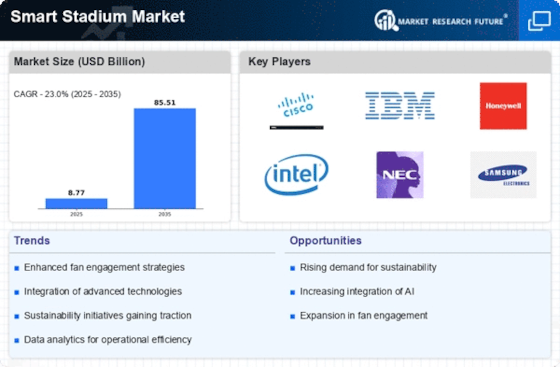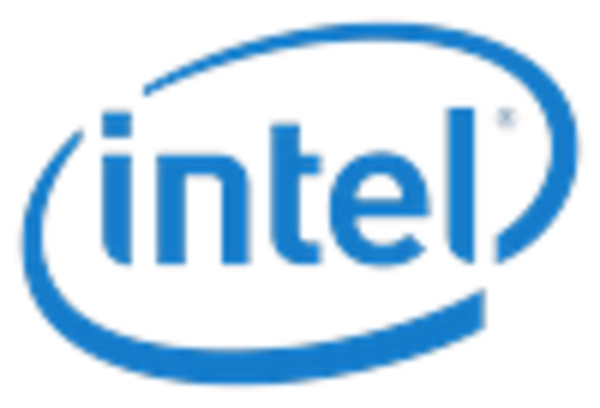Market Trends
Key Emerging Trends in the Smart Stadium Market
The Smart Stadium Market is undergoing rapid evolution, driven by the integration of cutting-edge technologies to enhance the overall fan experience and operational efficiency. One prevailing trend is the deployment of advanced connectivity solutions, such as 5G networks, within stadiums. This high-speed and low-latency connectivity not only facilitates seamless internet access for spectators but also enables a range of smart applications, including augmented reality (AR) experiences, instant replays, and interactive fan engagement. The transition to 5G is revolutionizing the way fans interact with sporting events, creating a more immersive and connected stadium experience.
Furthermore, the incorporation of Internet of Things (IoT) devices is a key trend shaping the Smart Stadium Market. Stadiums are deploying a multitude of sensors and connected devices to gather real-time data on various aspects, such as crowd movement, environmental conditions, and player performance. This data is leveraged to optimize operations, enhance security, and provide personalized services to fans. IoT technologies contribute to the creation of intelligent and data-driven stadiums, paving the way for a more efficient and enjoyable live sports experience.
Smart ticketing systems are gaining prominence in the market, offering fans a streamlined and contactless entry process. Mobile ticketing apps, equipped with features like in-seat food ordering and digital event guides, enhance convenience for spectators while providing stadiums with valuable insights into fan behavior. The move towards contactless solutions aligns with the broader trend of enhancing hygiene and safety within public spaces.
Augmented Reality (AR) and Virtual Reality (VR) technologies are also making a significant impact on the Smart Stadium Market. Stadiums are increasingly incorporating AR and VR elements to offer fans immersive experiences, such as virtual tours, interactive displays, and AR-enhanced live broadcasts. These technologies not only entertain spectators but also open up new revenue streams through virtual advertising and sponsorship opportunities, creating a more engaging and futuristic atmosphere within the stadium.
Moreover, the implementation of facial recognition and biometric technologies is enhancing security measures within smart stadiums. These advanced authentication methods streamline access control, reduce the risk of unauthorized entry, and enhance overall safety for both fans and event organizers. The integration of biometrics aligns with the industry's commitment to providing secure and efficient access solutions, contributing to the market's growth.
In-stadium analytics and data-driven insights are becoming integral components of the Smart Stadium Market. Advanced analytics platforms process the vast amounts of data collected from IoT devices and other sources to provide actionable insights for stadium operators. This includes optimizing facility management, predicting equipment maintenance needs, and understanding fan preferences to tailor the overall game-day experience. Data-driven decision-making contributes to operational efficiency and ensures stadiums are better equipped to meet the evolving demands of fans.
Sustainability initiatives are also shaping the Smart Stadium Market. Stadiums are adopting eco-friendly technologies, such as energy-efficient lighting, smart waste management systems, and sustainable building materials, to reduce their environmental impact. The integration of green technologies not only aligns with global efforts to promote sustainability but also appeals to environmentally conscious fans and stakeholders.

















Leave a Comment